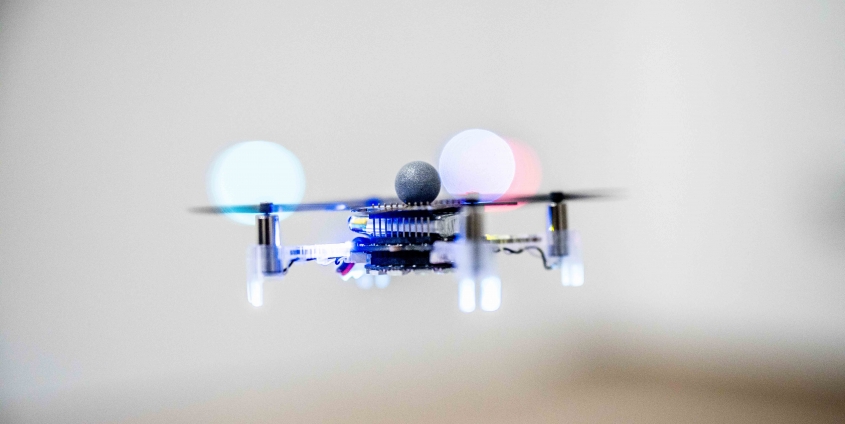New research project: Better eyes for robots and drones
Drones and robots struggle to navigate autonomously in the dark and in dusty settings. Researchers at the University of Klagenfurt are now developing a new technology that relies on radar sensors for navigation.
Robots move goods around in warehouses or actively collaborate in industrial production processes. Drones carry out delivery services or perform surveillance and inspection tasks. All of these jobs require them to navigate by themselves. Previously reliant on navigation satellite systems or external sensors for indoor localisation, today’s camera-based localisation allows for much more flexible movement. The cameras involved are very light, which means that the technology is suitable for use in a wide range of applications.
However, the new methods are subject to the same inherent limitations as normal camera images: Low or zero lighting results in motion blur or a lack of data. Tiny airborne particles interfere with image data and low rates restrict state estimation and limit any subsequent steering to fairly slow movements. Data protection is also a concern whenever autonomous systems operate around people and collect images.
Researchers working on the project “Consistent Aerial Radar-based Navigation In Visibility challenged Areas and Landscapes” (CARINIVAL) are developing the next on-board localisation technology. To this end, they plan to use radar sensors that are cost effective, small, light, and powerful, but work independently of the ambient lighting and that are capable of penetrating particles in the air. “Thanks to these properties, they are ideal sensors for use in harsh industrial environments”, principal investigator Stephan Weiss explains. He is head of Control of Networked Systems at the University of Klagenfurt.
The Austrian Research Promotion Agency (FFG) is funding the research work within the scope of the ICT of the Future – Bilateral Cooperative R&D Projects programme. The German Aerospace Center (DLR) and the Metzingen-based company Neura Robotics GmbH are involved in the project as industrial and research partners. DLR contributes its radar-based navigation expertise, while Neura Robotics GmbH brings specialized knowledge in mobile ground-based robots for environment sensing using radar.










 Drohnenhalle | Foto: aau/Waschnig
Drohnenhalle | Foto: aau/Waschnig
